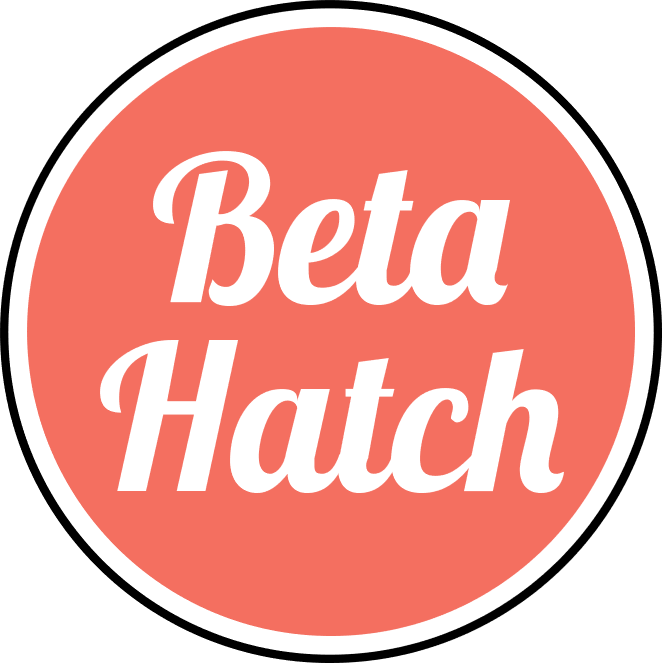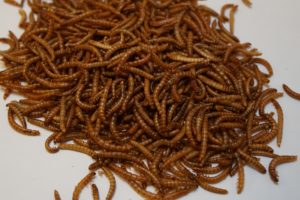
Company closes on $10 million growth funding round, led by Lewis & Clark AgriFood, with strong support from existing investors
ST. LOUIS, August 18, 2021 — The team of insect entrepreneurs at Beta Hatch has announced it has closed a new $10 million funding round, led by Lewis & Clark AgriFood, with support from existing investors Cavallo Ventures and Innova Memphis. Beta Hatch has secured product interest far exceeding existing capacity, and this latest round of funding will be used to finalize and expand Beta Hatch’s flagship facility in Cashmere, WA, as the company grows its footprint in rural America.
Beta Hatch is focused on scaling up the farming of insects for a more sustainable food chain. Through a proprietary process, it provides an alternative protein-rich, feed source for livestock, pets, and other animals. With its virtually zero-waste process, Beta Hatch also produces mealworm frass (insect manure), an organic fertilizer and soil amendment for improving soil health and plant growth for a variety of specialty and commodity growers.
“Novel food and feed ingredients is a key area of focus for Lewis & Clark AgriFood,” said Dave Taiclet, General Partner and Managing Director, Lewis & Clark AgriFood. “When we think about sustainability, it’s important that we take a holistic approach in evaluating all processes in the animal production supply chain. Beta Hatch is positioned well to provide a modern, sustainable alternative in the animal feed space, a key upstream component in the overall protein production cycle.”
While black soldier fly is today’s main insect ingredient in the market, mealworms are quickly gaining market share with enhanced nutritional benefits and higher protein concentration. These features, along with the domestic production Beta Hatch is establishing in North America, has drawn interest from a variety of industries, including livestock, poultry, and pet feed, in addition to aquaculture.
“As regenerative food systems become more prevalent, the feed industry will evolve along with it,” said Tim Hassler, Managing Director, Lewis & Clark AgriFood. “Beta Hatch’s approach to industrializing insects will provide a stable and steady food source in a variety of markets, while injecting capital investment into rural communities.”
Hassler is leading this latest investment effort from the Lewis & Clark AgriFood team, and he will be joining the Beta Hatch board of directors. Matt Plummer, Senior Associate, Lewis & Clark AgriFood, will serve as a board observer.
Beta Hatch is scaling up operations by using a hub and spoke model. The Cashmere facility will serve as the hub, producing eggs, while growing sites (spokes) will be located in close proximity to sources of feedstock and other key points in the supply chain. This approach means a smaller GHG footprint, and new capital investments in rural communities that leverage and revitalize existing infrastructure. As the company scales up its operations, so will the number of people the company employs in rural communities.
“We are proud to be a part of building the future of farming as a member of the Washington agricultural community,” said Virginia Emery, Founder and CEO, Beta Hatch. “We are excited for our presence in rural America to grow, as we employ and partner with the people in those communities to feed a growing global population.”
Once completed, the Cashmere facility will be the largest mealworm producing facility in North America. It will house the full production process for growing and distributing mealworms. The company will initially produce several thousand tons of mealworms and frass annually and be able to support rapid expansion of capacity from this flagship location. Currently, all available mealworm production is under contract for the near future and discussions are underway with several enterprise customers to partner in the construction of new facilities. The company has plans to more than 10x its production within the next year.
Beta Hatch has prioritized sustainable energy and zero-waste practices at its facilities. The Cashmere flagship maintains a small carbon footprint, as it is operating solely on renewably sourced electricity, with all of its heating needs supplied by waste heat from a nearby server farm. The production process itself is a zero-waste system, starting with the mealworms feeding on organic byproducts, and ending with the mealworms and their frass being used for feed and fertilizer.
About Beta Hatch
Beta Hatch is on a mission to industrialize insect farming within a regenerative food system. Its insect-rearing technology converts mealworms and their waste into high-value proteins, oils, and nutrients for agriculture. Its IP enables insects to cost-effectively meet the global scale of demand for animal feed and crop fertilizer. Learn more at betahatch.com, or connect with us on LinkedIn or Twitter.
About Lewis & Clark AgriFood
Lewis & Clark AgriFood is a St. Louis-based group of experienced investment professionals who are passionate about investing in companies at the forefront of food and agriculture innovation. We look for companies that deliver benefits to the stakeholders in the food and agriculture sector from the producer to the supply chain, all the way to the consumer. We invest in companies at the growth stage of their evolution, poised to scale their technology to a national or global scale. As founders, operators, investors and scientists, our seasoned investment team brings a breadth of quality sector experience to every investment. For more information, visit lewisandclarkagrifood.com or connect with us on LinkedIn or Twitter.








